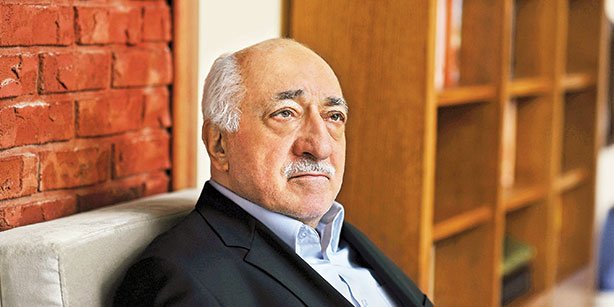US avoids commenting on Gülen’s extradition

Date posted: May 1, 2014
In reply to a question whether a formal request has been made by the Turkish authorities for the extradition, Psaki said she cannot comment on the issue due to privacy concerns. “I can’t speak, as a matter of policy, to any pending or potential extradition requests,” she added.
Erdoğan had said during an interview with American public television station PBS host Charlie Rose broadcast in the US on Monday night that the US should extradite Gülen.
When Rose asked Erdoğan if he believes the US will comply with Turkey’s request for an extradition, Erdoğan said he hopes to see that happen. The prime minister then quickly added that the US should at least deport Gülen.
Erdoğan acknowledged that the Islamic scholar has the right to permanently reside in the US by virtue of what is known of as a green card, which also gives Gülen legal rights in the US. The prime minister also pointed out that his government had cancelled Gülen’s Turkish passport, but did not mention why.
Deputy Prime Minister Beşir Atalay said on Tuesday that Gülen’s extradition had not been discussed in any of his meetings in the US, where he was visiting to attend a conference.
In the PBS interview, Erdoğan also claimed that Gülen might pose a security risk to the United States.
“These elements that threaten Turkey’s national security cannot be permitted to remain in other countries, either, because what they do to us here, they might do to their host,” Erdoğan told Rose.
On Tuesday, when asked by a reporter after a party parliamentary group meeting if a formal process seeking Gülen’s extradition from the United States would be started, Erdoğan replied, “Yes, it will begin.”
This is not the first time Erdoğan has raised the issue of extraditing the scholar. Speaking on Turkish TV in March, Erdoğan said he had asked US President Barack Obama during a phone call on Feb. 19 for Gülen to be extradited because he represents a threat to Turkey’s national security. Erdoğan claimed that Obama had viewed this request “positively” and replied by saying, “I got the message.”
In an unusual statement, the White House then accused Prime Minister Erdoğan of misrepresenting the content of the phone conversation with Obama.
“The response attributed to President Obama with regard to Mr. Gülen is not accurate,” the White House said in an e-mailed statement to various press organizations, including Today’s Zaman, in March. The statement marks a first in Turkish-American relations as a flat denial of the Turkish prime minister’s version of events.
Gülen is in self-imposed exile in the US, though there is no legal hurdle preventing him from returning to Turkey. Shortly after he went to the US in 2000, he was charged with establishing an illegal organization in Turkey but was eventually acquitted in 2008.
With regard to the normalization process in Turkish-Israeli relations, Psaki also responded to a question asking whether she could confirm that Erdoğan had said Turkey is preparing to normalize ties with Israel, saying she has no independent confirmation on the issue. “I’d certainly refer you to the Turkish and Israeli officials on that front,” she said.
In remarks during the interview with PBS, Erdoğan said both countries have come to an agreement over Turkish activists who were killed during an Israeli raid on an aid flotilla attempting to breach the Israel-imposed blockade on the Gaza Strip. “There are ongoing negotiations on sending humanitarian aid to Gaza. Appointing ambassadors will be the next step in the normalization process,” Erdoğan said.
“We believe – we continue engaging with both countries, and we believe reconciliation would advance regional peace and security between them,” Psaki added.
Source: Todays Zaman , April 30, 2014
Tags: Fethullah Gulen | Freedoms | Gulen extradition | USA |
























